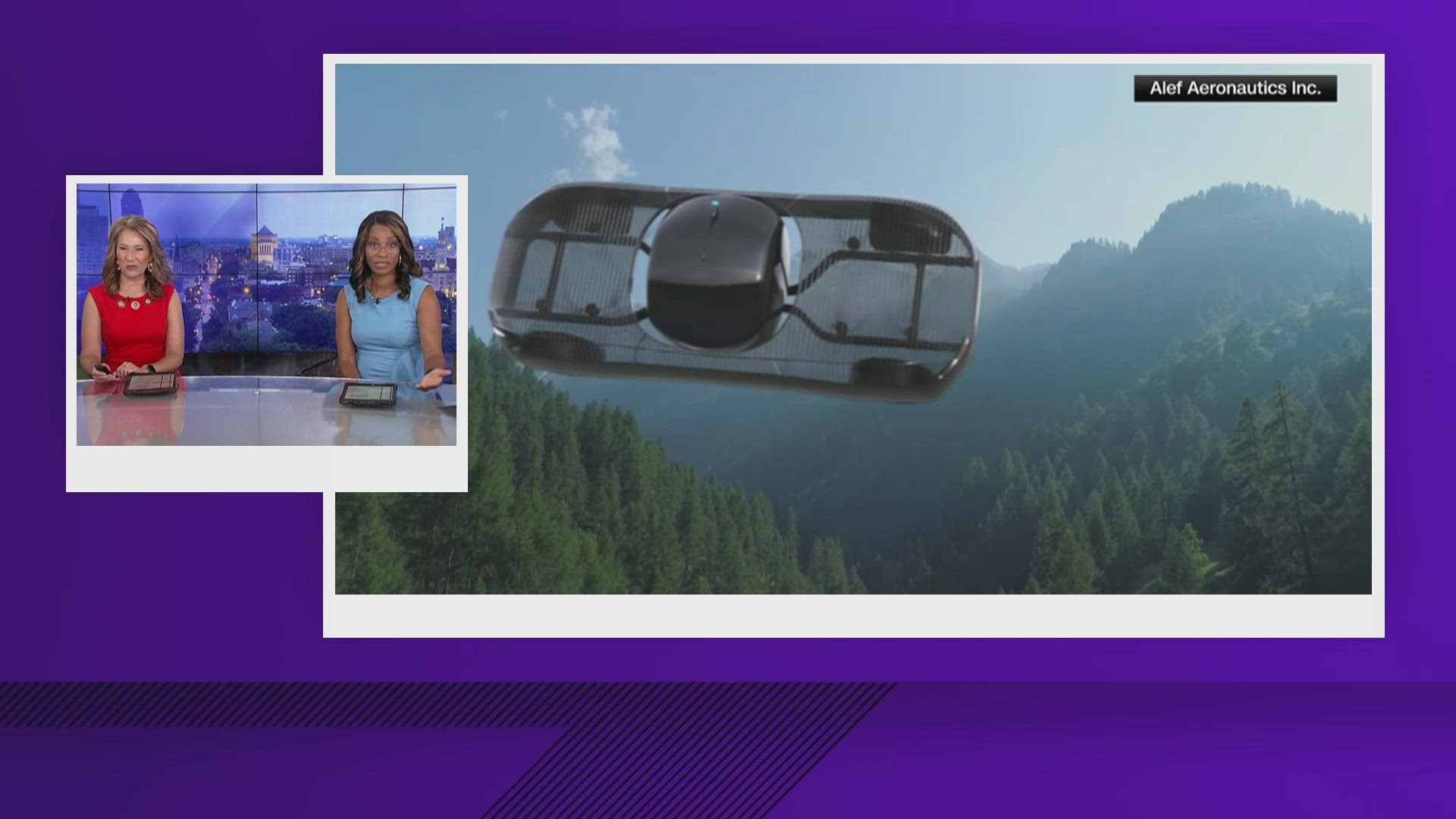INDIANAPOLIS — As state entities prepare to introduce roadmaps expected to shape how an influx of $100 million federal funds slotted for electric vehicle infrastructure would look across the state, the Indiana NAACP is calling on officials to adopt better equity standards within proposed guidelines and policies.
The Indiana NAACP announced they will intervene in commission proceedings underway now with the Indiana Utilities Regulatory Commission, with the goal of helping ensure an equitable shift to clean transportation in the state.
“Our communities have lacked investment for many, many years. Our communities tend to be where massive power outages are due to that lack of investment. Then, due to that lack of investment, there seems to be a continuing want to continue to not invest in Black communities and other disadvantaged communities of color, like in perpetuity, and or making those communities last in these investments, when actually these communities are the most vulnerable,” said Denise Abdul-Rahman, the state chair of Environmental Climate Justice at the Indiana State Conference of the NAACP.
The IURC is in the process of crafting orders that will determine what measures Indiana’s five big investor-owned utilities will need to take to ensure that EV infrastructure is deployed equitably in communities that have been historically neglected.
Organizations began pushing for an equitable shift to clean transportation in 2022, when Black business owners and organizations noted that the Indiana Department of Transportation held listening sessions centered on EV rollout in two Indiana towns they claimed still had sundown laws still on the books, took place in the middle of the day, and did not include diverse voices.
"In the case of electric vehicles and the grid, we ask that that the grid be improved so that it can charge these electric vehicle charging stations. We're asking for the economic benefits of the contracts with minority business enterprise, Black Business Enterprises. We're asking for the workforce training apprenticeships, that will be more inclusive and ramp up diversity in the apprenticeship - the ability to provide training and hiring more persons of color into the clean energy field," Abdul-Rahman said.
A coalition of over 25 statewide Black organizations and groups called the Indiana Alliance for Equity, Diversity and Inclusion of Electric Vehicle Infrastructure and Economic Opportunities - or simply The Alliance - laid out a six-point plan for state leaders.
It suggests that state agencies make:
A commitment to post online and transparent data. That can clearly show metrics and progress of inclusion (i.e. Race Conscious Ethnic Diversity Dashboard).
A commitment to far exceed 10% minority business enterprise (MBE) goals. With intentional efforts towards race consciousness, Black business enterprises. Because MBE includes white women, veterans and other people of color.
A commitment and enforcement to Black, racially and ethnically diverse workforce hiring and development. Along with apprenticeship, training programs, partnerships and opportunities with a fair chance.
A commitment to place EV charging stations, grid resiliency improvements (including community owned solar) in and on Black, racially/ethnically diverse communities and business owned properties to include faith based institutions, under resourced schools and grassroot not-for-profits and adding a race conscious geo-mapping overlay.
A commitment to quantify the projected air pollution to include greenhouse gas reduction. Based on the geographic placement in Black and racially/ethnically diverse communities.
A commitment to an equity advisory board made up of Black, racially/ethnically diverse organizations to guide the current INDOT working group.
It’s this plan the Indiana NAACP wants the IURC to adopt in their final order.
“We in the urban communities can no longer sit on the sidelines while the data continues to show that one's ZIP code will determine one’s destiny. It’s almost always a minority ZIP code of Black or brown people that is deprived of infrastructure. It’s a ZIP code that shows the lack of investment in items that would benefit their environment”, said Rev. David Greene, president of the Concerned Clergy, an organization part of The Alliance, in a statement.
They point to a U.S. Department of Transportation initiative called Justice40, which stipulates 40% of federal funds must go to underfunded communities most affected by pollution.
As Indiana prepares to receive those funds, The Alliance said they are simply hoping to spur state policymakers to align their standards with those national ones.
"There are a lot of groups that are working on transit equity across the nation. But I do think that in Indiana, we might be fairly unique. As a group that is working on easy charging, deployment equity, and everything that comes with the economics," Abdul-Rahman said.
Last year, The Alliance called on the U.S. Department of Transportation to reject INDOT's EV infrastructure plan, because they claim it failed to engage communities of color or outline meaningful equity commitments.
Although the Alliance was able to meet with USDOT representatives to discuss these concerns, INDOT was able to move forward with its plan.
To date, they claim INDOT has only incorporated small pieces of their plan.
The Indiana Department of Transportation said it will administer nearly $100 million in federal funds for fast-charging stations received through the NEVI program, which was created by the Bipartisan Infrastructure Law.
“The agency remains committed to equity in its rollout of the NEVI program and will continue to work with all stakeholders for inclusive access and opportunities throughout Indiana. INDOT has expanded its approach to engagement and networking events by advertising through diverse channels and holding events at varying times of day in locations across the state, including virtual and on-demand options,” an INDOT spokesperson told 13News in a statement.
Still, it remains to be seen what equitable policy initiatives IURC will demand of the Big 5 utility investors in Indiana, or if they will adopts aspects of The Alliance's Six-Point Plan.
A draft of that plan could come as early as September.
IURC did not respond to 13News’ request for comment.

